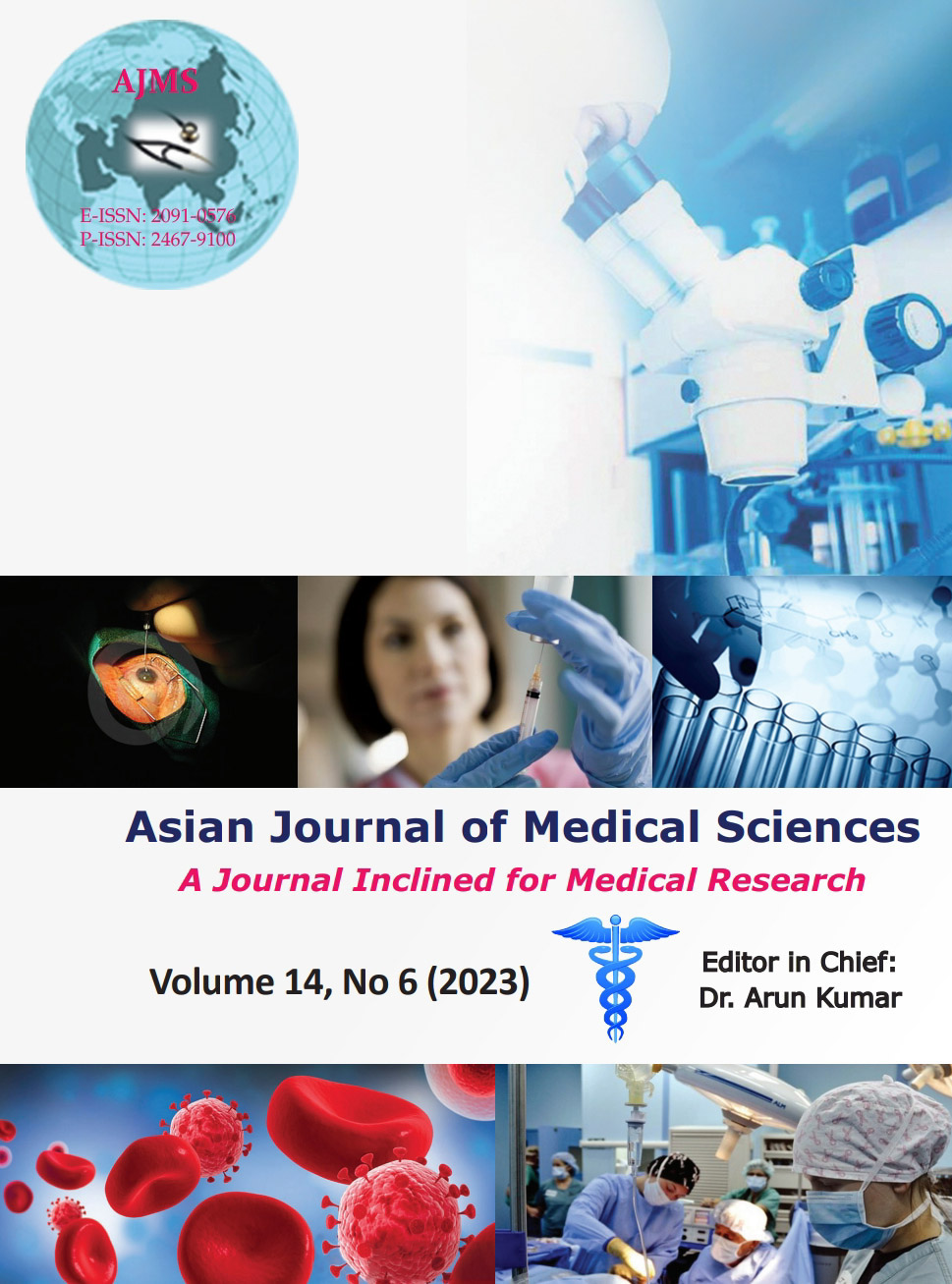Estimation of SARS-COVID antibody level in mother and newborn baby among mothers affected by covid during the antenatal period
DOI:
https://doi.org/10.3126/ajms.v14i6.50829Keywords:
Coronavirus; Coronavirus disease-19; Pregnancy; Severe acute respiratory syndrome-coronavirus-2Abstract
Background: Severe acute respiratory syndrome-coronavirus-2 infection increases the incidence of severe coronavirus disease-19 (COVID-19) in pregnant women. An increased risk of stillbirth and problems such as preeclampsia, preterm birth, and neonatal intensive care unit hospitalization may be caused by COVID-19 during pregnancy which might lead to an increased risk of COVID-19 mortality, admission to an intensive care unit, and mechanical ventilation.
Aims and Objectives: To estimate SARS-COVID antibody level in mother and newborn baby among mothers affected by covid during the antenatal period.
Materials and Methods: This is a prospective cross-sectional study conducted at Sri Ramachandra Institute of Higher Education and Research from June 2021 to September 2021. A total of 30 women, affected with SARS-COVID during the antenatal period, confirmed with reverse transcription-polymerase chain reaction testing were included in this study. Blood samples were collected from mothers at the time of delivery and cord blood sample was used for antibody detection in mothers and neonates respectively.
Results: Severe infection was noted in 5 women (16.6%) who required oxygen supplementations, and 2 of them required heparin therapy. Women with severe illness showed decreased antibody levels-total antibody (≤500–100%), and neutralizing antibody (≤1000–60%), but statistical significance was not proved. Hence, antibody levels did not correlate with the severity of illness.
Conclusion: The current study has demonstrated that women who were pregnant during the COVID-19 pandemic had good knowledge, attitudes, and practices. It is thought that these positive aspects will be beneficial to expectant mothers who are going through pregnancy while still adhering to health protocols or advice from medical professionals on how to carry a pregnancy safely amid this COVID-19 epidemic.
Downloads
34
61
Downloads
Published
How to Cite
Issue
Section
License
Copyright (c) 2023 Asian Journal of Medical Sciences

This work is licensed under a Creative Commons Attribution-NonCommercial 4.0 International License.
Authors who publish with this journal agree to the following terms:
- The journal holds copyright and publishes the work under a Creative Commons CC-BY-NC license that permits use, distribution and reprduction in any medium, provided the original work is properly cited and is not used for commercial purposes. The journal should be recognised as the original publisher of this work.
- Authors are able to enter into separate, additional contractual arrangements for the non-exclusive distribution of the journal's published version of the work (e.g., post it to an institutional repository or publish it in a book), with an acknowledgement of its initial publication in this journal.
- Authors are permitted and encouraged to post their work online (e.g., in institutional repositories or on their website) prior to and during the submission process, as it can lead to productive exchanges, as well as earlier and greater citation of published work (See The Effect of Open Access).




